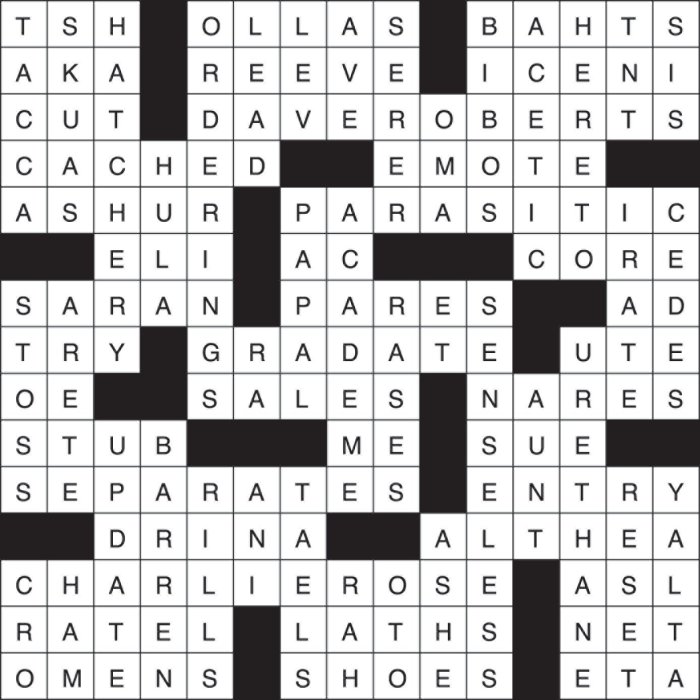Made a case in court crossword – Embark on a captivating journey into the enigmatic world of crossword puzzles, where we delve into the intriguing phrase “made a case in court.” This crossword conundrum unveils the intricacies of legal proceedings, presenting a unique blend of intellectual challenge and courtroom drama.
Unraveling the complexities of “making a case in court” in the context of crossword puzzles requires a keen understanding of legal terminology, courtroom procedures, and the art of crafting clever clues. Prepare to navigate a labyrinth of legal jargon, witness the interplay of evidence and argumentation, and discover the hidden gems within crossword puzzle clues.
Definition and Meaning
In the context of a crossword puzzle, “made a case in court” refers to the process of presenting evidence and arguments to convince a jury or judge of a particular legal position.
Synonyms or alternative phrases that could be used as clues for this entry include:
- Presented evidence in court
- Argued a legal case
- Litigated
- Prosecuted or defended a case
Legal Process
Making a case in court involves a series of steps that follow a structured legal process. This process aims to resolve disputes and ensure justice through the impartial application of laws.
The legal process typically begins with the filing of a complaint by the plaintiff, who is the party claiming to have suffered harm or loss. The defendant, the party being sued, is then served with the complaint and has the opportunity to respond.
The case then proceeds through a series of pretrial procedures, including discovery, motions, and settlement negotiations.
Roles of Lawyers, Judges, and Juries, Made a case in court crossword
Lawyers play a crucial role in the legal process, representing their clients and advocating for their interests. They are responsible for gathering evidence, preparing legal arguments, and presenting their case in court. Judges preside over court proceedings, ensure that the rules of evidence are followed, and make legal rulings on matters of law.
In certain cases, juries are empaneled to decide questions of fact. Juries are composed of ordinary citizens who are selected to represent a cross-section of the community. They listen to the evidence presented at trial and deliberate to reach a verdict.
Burden of Proof and Standard of Evidence
In a legal proceeding, the burden of proof lies with the party making the claim. The burden of proof refers to the responsibility of a party to present evidence to support their claims or defenses.
The standard of evidence refers to the level of proof required to establish a claim or defense. In civil cases, the plaintiff typically must prove their case by a preponderance of the evidence, which means that it is more likely than not that their claims are true.
Solving the crossword clue “made a case in court” can be tricky, but the answer is often found in legal terminology. Speaking of tricky situations, have you ever wondered if Tri-Heart Plus is effective against fleas? Here’s a helpful article that delves into the topic.
Returning to the crossword, remember that the answer to “made a case in court” is usually a legal term.
In criminal cases, the prosecution must prove its case beyond a reasonable doubt, a higher standard of proof that reflects the seriousness of the charges.
Evidence and Argumentation
In court, the burden of proof lies on the party making the claim. To support their case, lawyers present evidence and build arguments.
Evidence is any information that can be used to prove or disprove a fact in dispute. This includes witness testimony, documents, and physical evidence.
Witness Testimony
Witness testimony is a powerful form of evidence. Eyewitnesses can provide firsthand accounts of events, while experts can offer their professional opinions on matters related to their field of expertise. However, witness testimony can also be unreliable, as witnesses may be biased or mistaken.
Documents
Documents can provide valuable evidence in court. These may include contracts, emails, text messages, and other written records. Documents can be used to prove a variety of facts, such as the terms of an agreement or the occurrence of an event.
Physical Evidence
Physical evidence is any tangible object that can be used to prove a fact in dispute. This may include weapons, clothing, or DNA samples. Physical evidence can be very persuasive, as it can provide concrete proof of a crime or other wrongdoing.
Lawyers use evidence to build arguments in support of their clients’ cases. They present evidence to the jury or judge in a way that is designed to persuade them of their client’s innocence or guilt.
Cross-Examination
Cross-examination is a key part of the trial process. Lawyers use cross-examination to challenge the credibility of witnesses and the reliability of evidence. By asking pointed questions, lawyers can expose weaknesses in the opposing party’s case and strengthen their own.
Legal Terminology
In the realm of law, a precise and nuanced vocabulary is essential for effective communication and understanding. When “making a case in court,” legal professionals employ a distinct set of terms that convey specific meanings and concepts.
The use of legal jargon can be daunting for those unfamiliar with the field, but it is a vital tool for expressing complex legal ideas concisely and accurately. Crossword puzzles often incorporate legal terms as a way to test solvers’ knowledge and challenge their understanding of legal concepts.
Glossary of Key Legal Terms
To enhance comprehension, here is a glossary of key legal terms frequently encountered in crossword puzzles:
| Term | Meaning |
|---|---|
| Affidavit | A sworn statement in writing |
| Attorney | A licensed professional who provides legal advice and representation |
| Brief | A written document that summarizes the facts and legal arguments of a case |
| Burden of Proof | The responsibility of one party to prove a fact or issue |
| Defendant | The party being sued |
| Ex Parte | A proceeding in which only one party is present |
| Habeas Corpus | A legal order requiring a person to be brought before a court |
| Injunction | A court order prohibiting a party from doing something |
| Jurisdiction | The authority of a court to hear and decide a case |
| Pro Se | Representing oneself in court without an attorney |
| Subpoena | A court order requiring a person to testify or produce evidence |
| Voir Dire | The questioning of potential jurors to determine their qualifications |
Crossword Puzzle Clues: Made A Case In Court Crossword

Crossword puzzle clues for “made a case in court” can vary in difficulty and word length, catering to solvers of different skill levels. These clues often employ puns, wordplay, and abbreviations to make them more challenging and engaging.
Some common types of crossword puzzle clues for “made a case in court” include:
Straightforward Clues
- What a lawyer does in court (5 letters)
- Presented evidence (4 letters)
Punny Clues
- Boxer in the courtroom (4 letters)
- Musical performance in court (4 letters)
Wordplay Clues
- What a lawyer does with a brief (4 letters)
- Argument that holds water (4 letters)
Abbreviation Clues
- Legal professional (abbr.)
- Courtroom document (abbr.)
FAQ Guide
What is the significance of “burden of proof” in a court case?
The burden of proof refers to the responsibility of a party in a legal proceeding to prove the truth of their claims or assertions.
How do lawyers present arguments in court?
Lawyers present arguments through opening statements, closing statements, and cross-examinations, using evidence and legal reasoning to support their clients’ positions.
